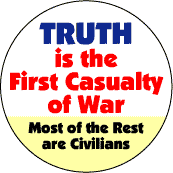More lucky than awesome, hehe. It took me ten minutes of dialing before I got through. It was unfortunate that I was running up against CSPAN's timeclock since they had to cut away to a Senate hearing. I had a LOT more questions for Mitch Glazier, the RIAA's poster-boy. First, the $400 million estimate by the FTC was a conservative estimate. Early on in the multi-state suit process, Eliot Spitzer (the NY Attorney General who spearheaded the case) hinted that the real theft could be somewhere between $500 million and $1 billion! But here's the big question.MOTOMATT wrote:
OlderThanDirt You are awesome!
The multi-state class-action antitrust suit was just that ... a civil suit on behalf of states. With a theft of at least $400 million proven by the FTC, where was U.S. Justice Department? Why didn't this become a criminal case as soon as the FTC released its findings? Why aren't the engineers of this monumental theft cooling their heels behind bars in a Federal penetentiary? Only John Ashcroft, the U.S. Attorney General has the answer to those questions and I'm unaware of any explanation on his part for DOJ inaction.
This is a kind-of Robin Hood situation ... where the industry took from the poor and gave to the rich while the Sheriff of Nottingham (Ashcroft) stood idly by. If people merely downloaded files without sharing them, they could be classified as common thieves (unless they're downloading a song they already own). But, in sharing what they've downloaded, they begin to look a lot more like Robin Hood (grin).
The music industry is very insular. If anyone sang an artist's song in public for nothing, it's not their concern. Even if someone sang an artist's song in public for profit, it's still not their concern (they'd leave that up to the musician's union or an artist's licenseer). But a CD is "their baby" ... their product ... and they take it very personally when someone messes with it. In short, it's their bottom line, not the artist's bottom line, that forces their hand.kildred11 wrote:
So if I can play their song than why can't I share it with friends as long as I don't profit from it.
BTW, prior to my CSPAN call, Gigi Sohn (bless her heart) brought up the CD theft usually not discussed -- the selling of 15 songs where only 1 or 2 are bonafide "hits" ... with the other songs being "filler." This is the REAL reason the industry is scared. P2P was a wake-up call for consumers ... helping them to realize they were paying top-dollar for a product they only use "part" of. In another topic area, I compared this to a visit to a grocery store. Imagine you go to a grocer to buy an apple and the grocer says, "Sorry, I can't sell you that apple unless you also buy these 14 lemons, too," you'd think the grocer was nuts. But this nutty logic has been the cash-cow for the music industry since the 1950s. And P2P dismisses the value of the "album" format of consumerism and champions a "song-by-song" format. Scary stuff to industry honchos.
P.S. -- For anyone interested, Gigi Sohn is the head honcho for Public Knowledge, a political action group that, for the most part, is on our side. Click here to visit their homepage.







 Reply With Quote
Reply With Quote That would be great.
That would be great.





Bookmarks